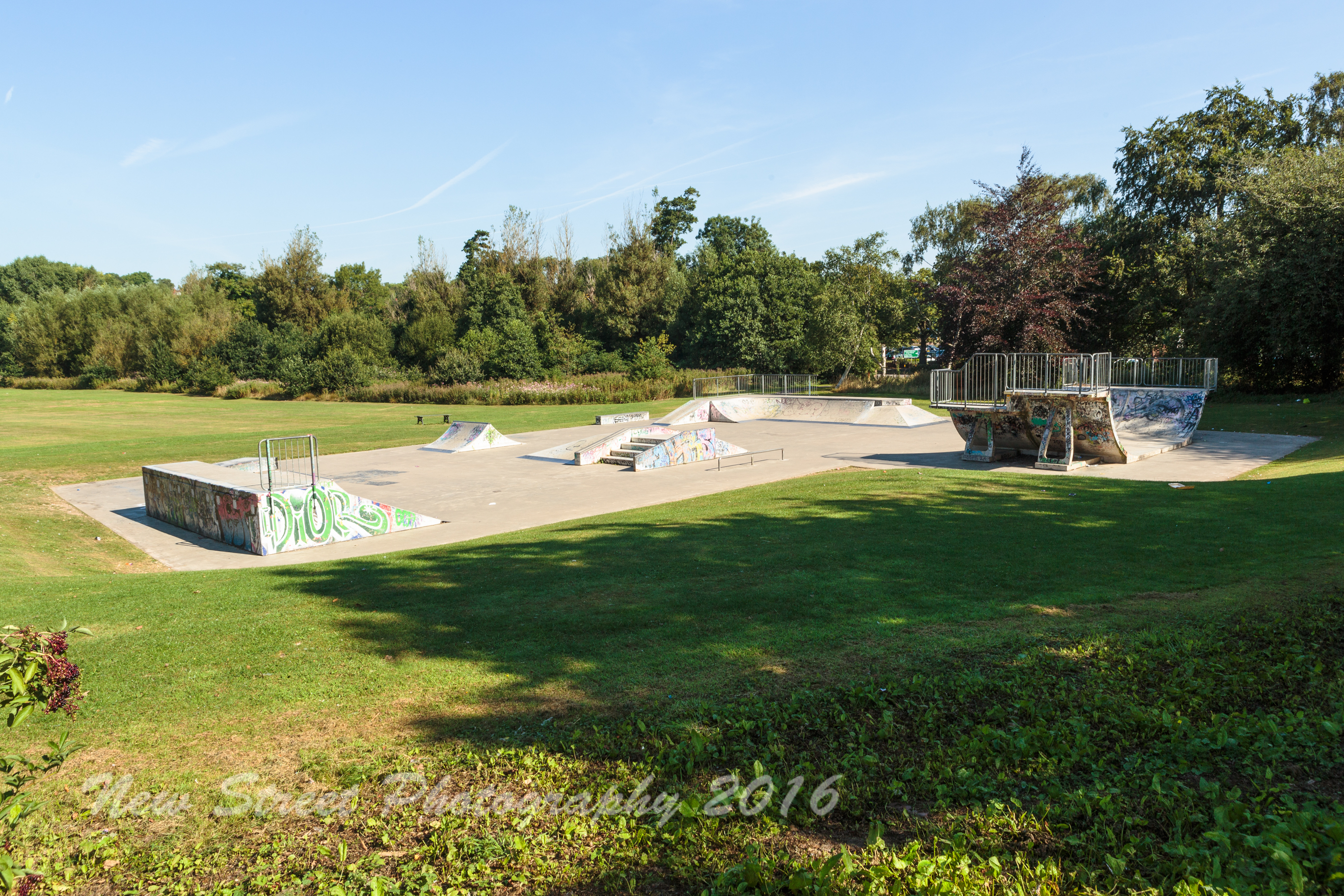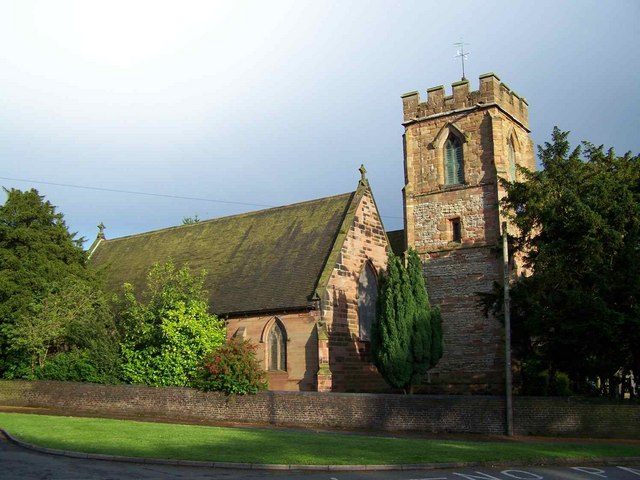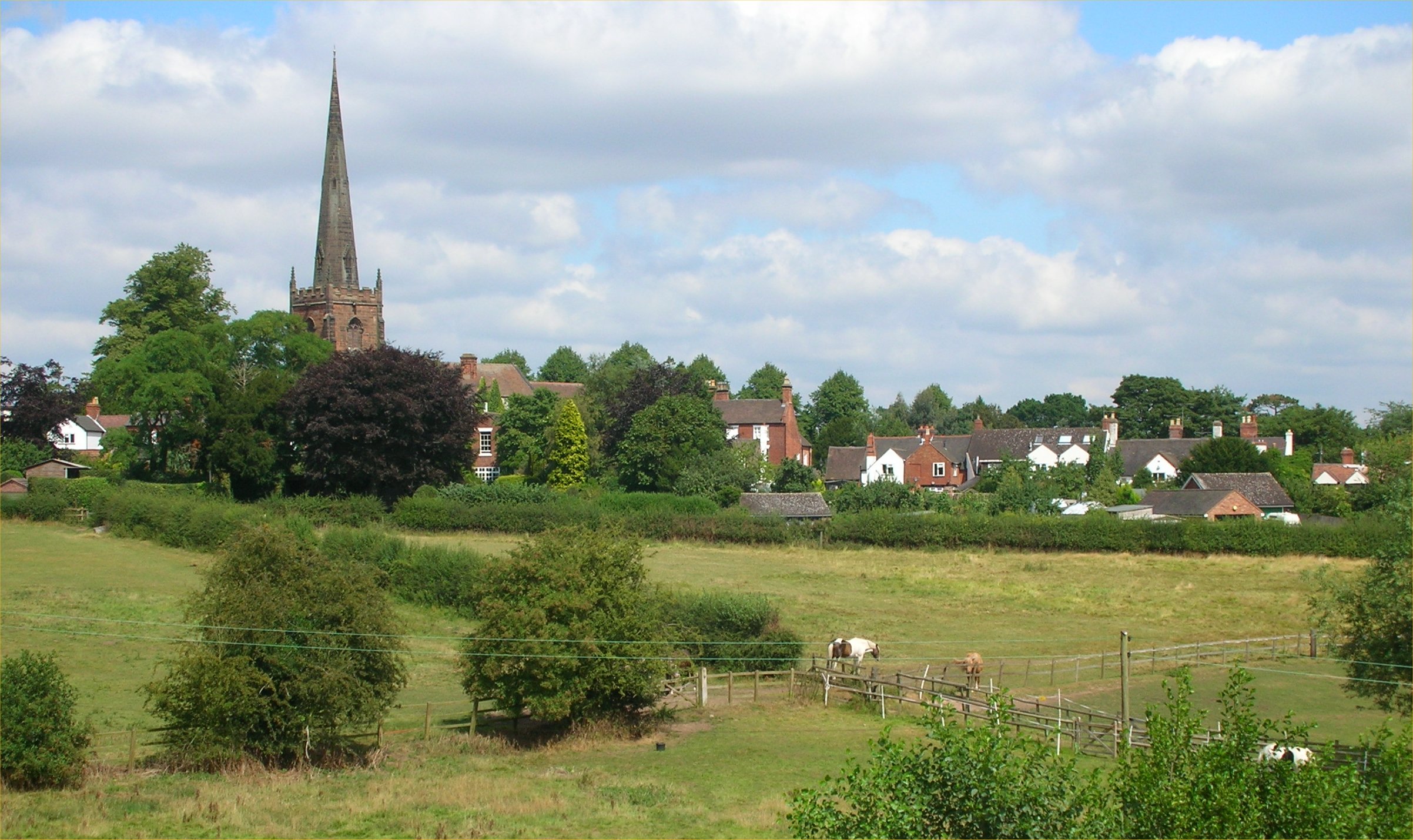|
Jeremiah Smith (Manchester Grammar School)
Jeremiah Smith (1771–1854) was an English cleric, known for his time as High Master of Manchester Grammar School. Life The son of Jeremiah and Ann Smith, he was born at Brewood, Staffordshire, on 22 July 1771, and was educated under Dr. George Croft at Brewood school. He entered Hertford College, Oxford, in 1790, and graduated B.A. in 1794, M.A. in 1797, B.D. in 1810, and D.D. in 1811. Smith was ordained in 1794 to the curacy of Edgbaston, Birmingham, which he soon exchanged for that of St. Mary's, Moseley. He was also assistant, and then second master, in King Edward's School, Birmingham; and on 6 May 1807 was appointed High Master of Manchester Grammar School, a position he held for thirty years. While at Manchester, Smith held successively the curacies of St. Mark's, Cheetham Hill, St. George's, Carrington, and Sacred Trinity, Salford, and the incumbency of St. Peter's, Manchester (1813–25), and the rectory of St. Ann's in the same town (1822–1837). He also held the smal ... [...More Info...] [...Related Items...] OR: [Wikipedia] [Google] [Baidu] |
Manchester Grammar School
The Manchester Grammar School (MGS) in Manchester, England, is the largest independent school (UK), independent day school for boys in the United Kingdom. Founded in 1515 as a Grammar school#free tuition, free grammar school next to Manchester Cathedral, Manchester Parish Church, it moved in 1931 to its present site at Rusholme. In accordance with its founder's wishes, MGS remains a predominantly academic school and belongs to the Headmasters' and Headmistresses' Conference. In the post-war period, MGS was a direct-grant grammar school. It chose to become an independent school in 1976 after the Labour Party (UK), Labour government abolished the Direct grant grammar school, Direct Grant System. Fees for 2016–2017 were £11,970 per annum. Motto, coat of arms and school badges The school's motto is ''wikt:sapere aude, Sapere Aude'' ("Dare to be Wise"), which was also the motto of the County Borough Council, council of the former County Borough of Oldham (now, with the same coat ... [...More Info...] [...Related Items...] OR: [Wikipedia] [Google] [Baidu] |
King's Norton
Kings Norton, alternatively King's Norton, is an area of Birmingham, England. Historically in Worcestershire, it was also a Birmingham City Council ward within the Government of Birmingham, England. The district lies 6.5 miles south-southwest of Birmingham city centre and is within 1.5 miles of the north Worcestershire border. Kings Norton has been split into two wards, Kings Norton North and Kings Norton South. History There was Romano-British occupation near the later town. Excavations at Kings Norton found signs of a small Romano-British settlement, including Roman pottery and a Roman ditch at Parsons Hill, near Icknield Street. Kings Norton derives its origin from the basic Early English ''Nor + tun'', meaning North settlement and belonging to or held by the king, when Kings Norton was the northernmost of the berewicks or outlying manors of Bromsgrove in Worcestershire. Before 1066 these manors with many others in Birmingham had belonged to Earl Edwin, the Anglo-Saxon ... [...More Info...] [...Related Items...] OR: [Wikipedia] [Google] [Baidu] |
Clergy From Staffordshire
Clergy are formal leaders within established religions. Their roles and functions vary in different religious traditions, but usually involve presiding over specific rituals and teaching their religion's doctrines and practices. Some of the terms used for individual clergy are clergyman, clergywoman, clergyperson, churchman, and cleric, while clerk in holy orders has a long history but is rarely used. In Christianity, the specific names and roles of the clergy vary by denomination and there is a wide range of formal and informal clergy positions, including deacons, elders, priests, bishops, preachers, pastors, presbyters, ministers, and the pope. In Islam, a religious leader is often known formally or informally as an imam, caliph, qadi, mufti, mullah, muezzin, or ayatollah. In the Jewish tradition, a religious leader is often a rabbi (teacher) or hazzan (cantor). Etymology The word ''cleric'' comes from the ecclesiastical Latin ''Clericus'', for those belonging ... [...More Info...] [...Related Items...] OR: [Wikipedia] [Google] [Baidu] |
High Masters Of Manchester Grammar School
High may refer to: Science and technology * Height * High (atmospheric), a high-pressure area * High (computability), a quality of a Turing degree, in computability theory * High (tectonics), in geology an area where relative tectonic uplift took or takes place * Substance intoxication, also known by the slang description "being high" * Sugar high, a misconception about the supposed psychological effects of sucrose Music Performers * High (musical group), a 1974–1990 Indian rock group * The High, an English rock band formed in 1989 Albums * ''High'' (The Blue Nile album) or the title song, 2004 * ''High'' (Flotsam and Jetsam album), 1997 * ''High'' (New Model Army album) or the title song, 2007 * ''High'' (Royal Headache album) or the title song, 2015 * ''High'' (EP), by Jarryd James, or the title song, 2016 Songs * "High" (Alison Wonderland song), 2018 * "High" (The Chainsmokers song), 2022 * "High" (The Cure song), 1992 * "High" (David Hallyday song), 1988 * " ... [...More Info...] [...Related Items...] OR: [Wikipedia] [Google] [Baidu] |
19th-century English Anglican Priests
The 19th (nineteenth) century began on 1 January 1801 ( MDCCCI), and ended on 31 December 1900 ( MCM). The 19th century was the ninth century of the 2nd millennium. The 19th century was characterized by vast social upheaval. Slavery was abolished in much of Europe and the Americas. The First Industrial Revolution, though it began in the late 18th century, expanding beyond its British homeland for the first time during this century, particularly remaking the economies and societies of the Low Countries, the Rhineland, Northern Italy, and the Northeastern United States. A few decades later, the Second Industrial Revolution led to ever more massive urbanization and much higher levels of productivity, profit, and prosperity, a pattern that continued into the 20th century. The Islamic gunpowder empires fell into decline and European imperialism brought much of South Asia, Southeast Asia, and almost all of Africa under colonial rule. It was also marked by the collapse of the large ... [...More Info...] [...Related Items...] OR: [Wikipedia] [Google] [Baidu] |
1854 Deaths
Events January–March * January 4 – The McDonald Islands are discovered by Captain William McDonald aboard the ''Samarang''. * January 6 – The fictional detective Sherlock Holmes is perhaps born. * January 9 – The Teutonia Männerchor in Pittsburgh, U.S.A. is founded to promote German culture. * January 20 – The North Carolina General Assembly in the United States charters the Atlantic and North Carolina Railroad, to run from Goldsboro through New Bern, to the newly created seaport of Morehead City, near Beaufort. * January 21 – The iron clipper runs aground off the east coast of Ireland, on her maiden voyage out of Liverpool, bound for Australia, with the loss of at least 300 out of 650 on board. * February 11 – Major streets are lit by coal gas for the first time by the San Francisco Gas Company; 86 such lamps are turned on this evening in San Francisco, California. * February 13 – Mexican troops force William Walker ... [...More Info...] [...Related Items...] OR: [Wikipedia] [Google] [Baidu] |
1771 Births
Events January– March * January 5 – The Great Kalmyk (Torghut) Migration is led by Ubashi Khan, from the east bank of the Lower Volga River back to the homeland of Dzungaria, at this time under Qing Dynasty rule. * January 9 – Emperor Go-Momozono accedes to the throne of Japan, following his aunt's abdication. * February 12 – Upon the death of Adolf Frederick, he is succeeded as King of Sweden by his son Gustav III. At the time, however, Gustav is unaware of this, since he is abroad in Paris. The news of his father's death reaches him about a month later. * March – War of the Regulation: North Carolina Governor William Tryon raises a militia, to put down the long-running uprising of backcountry militias against North Carolina's colonial government. * March 12 – The North Carolina General Assembly establishes Wake County (named for Margaret Wake, the wife of North Carolina Royal Governor William Tryon) from portions of Cumberland, J ... [...More Info...] [...Related Items...] OR: [Wikipedia] [Google] [Baidu] |
Aldridge
Aldridge is an industrial town in the Walsall borough, West Midlands, England. It is historically a village that was part of Staffordshire until 1974. The town is from Brownhills, from Walsall, from Sutton Coldfield and from Lichfield. The town is also the second-largest town in the Walsall Borough (By population after Walsall). History The name "Aldridge" is derived from the Anglo-Saxon ''alr'' or ''alre'' + ''wīc'' meaning 'alder (tree) + village'. Another suggestion is that the name "Aldridge" means "outlying farm among alder-trees", from the Old English ''alor'' and ''wīc''. It was recorded as ''Alrewic'' in the Domesday Book of 1086 when it was valued at 15 shillings and had a population of seven households; the Lord was Robert (d'Oilly) and the tenant-in-chief was William son of Ansculf. The name was recorded as ''Alrewich'' and ''Allerwych'' in the 12th century. Aldridge began as a small agricultural settlement, with farming being the most common occupatio ... [...More Info...] [...Related Items...] OR: [Wikipedia] [Google] [Baidu] |
Great Reform Bill
The Representation of the People Act 1832 (also known as the 1832 Reform Act, Great Reform Act or First Reform Act) was an Act of Parliament, Act of Parliament of the United Kingdom (indexed as 2 & 3 Will. IV c. 45) that introduced major changes to the Voting system, electoral system of England and Wales. It abolished tiny Electoral district, districts, gave representation to cities, gave the vote to small landowners, tenant farmers, shopkeepers, householders who paid a yearly rental of £10 or more, and some lodgers. Only qualifying men were Suffrage, able to vote; the Act introduced the first explicit statutory bar to Women's suffrage, women voting by defining a voter as a male person. It was designed to correct abuses – to "take effectual Measures for correcting divers Abuses that have long prevailed in the Choice of Members to serve in the British House of Commons, Commons House of Parliament". Before the reform, most members nominally represented boroughs. The number of ... [...More Info...] [...Related Items...] OR: [Wikipedia] [Google] [Baidu] |
Brewood
Brewood is an ancient market town in the civil parish of Brewood and Coven, in the South Staffordshire district, in the county of Staffordshire, England. Located around , Brewood lies near the River Penk, eight miles north of Wolverhampton city centre and eleven miles south of the county town of Stafford. A few miles to the west of Brewood is the border with the county of Shropshire. Etymology The Domesday Book of 1086 documented the town as 'Breude'. The name is probably a compound made up of a Celtic, Brythonic word with an Anglo Saxon, Old English word. The first element is the British word 'briga', which appears in modern Welsh as 'bre'. This is the most common of a number of Celtic place-name elements signifying a hill. It appears in various combinations, but sometimes on its own, as in Bray. Margaret Gelling, a specialist in West Midland toponyms, suggested that it was often misunderstood by the Anglo-Saxons as a name rather than as a common noun. So they thought they ... [...More Info...] [...Related Items...] OR: [Wikipedia] [Google] [Baidu] |
Catholic Emancipation
Catholic emancipation or Catholic relief was a process in the kingdoms of Great Britain and Ireland, and later the combined United Kingdom in the late 18th century and early 19th century, that involved reducing and removing many of the restrictions on Roman Catholics introduced by the Act of Uniformity, the Test Acts and the penal laws. Requirements to abjure (renounce) the temporal and spiritual authority of the pope and transubstantiation placed major burdens on Roman Catholics. The penal laws started to be dismantled from 1766. The most significant measure was the Roman Catholic Relief Act 1829, which removed the most substantial restrictions on Roman Catholicism in the United Kingdom. The Act of Settlement 1701 and the Bill of Rights 1689 provisions on the monarchy still discriminate against Roman Catholics. The Bill of Rights asserts that "it hath been found by experience that it is inconsistent with the safety and welfare of this Protestant Kingdom to be governed by a P ... [...More Info...] [...Related Items...] OR: [Wikipedia] [Google] [Baidu] |
Great Wilbraham
Great Wilbraham is a small village situated in a rural area some seven miles (11 km) to the east of Cambridge, between the edge of an area of low-lying drained fens to the west and north, and higher ground beyond the A11 to the east. The administrative authorities are Cambridgeshire County Council, South Cambridgeshire District Council, and Great Wilbraham Parish Council. History The parish of Great Wilbraham has been occupied for thousands of years; a Neolithic camp was excavated in the west of the parish in 1976, and a Bronze Age barrow, where up to eight burials were discovered in 1852, lies alongside the Fleam Dyke in the southern corner of the parish. A possible Roman dwelling was also located in woodlands. The medieval history of Great Wilbraham is tied up with that of neighbouring Little Wilbraham, and they were first distinguished in the 13th century when it was also known as King's Wilbraham. Listed as ''Wilburgeham'' in the 10th century, and ''Wiborgham'' in the ... [...More Info...] [...Related Items...] OR: [Wikipedia] [Google] [Baidu] |








